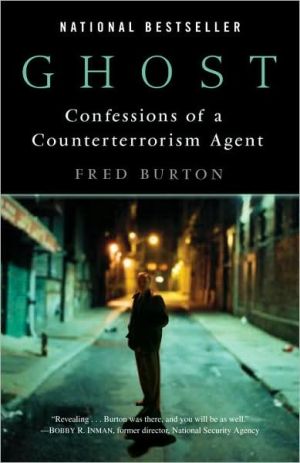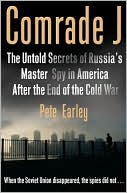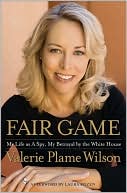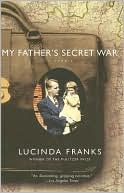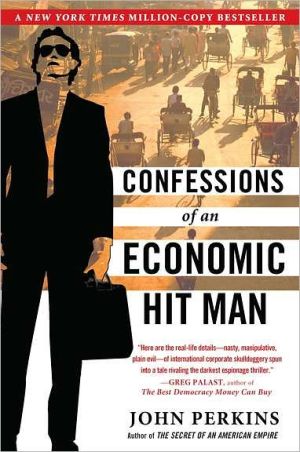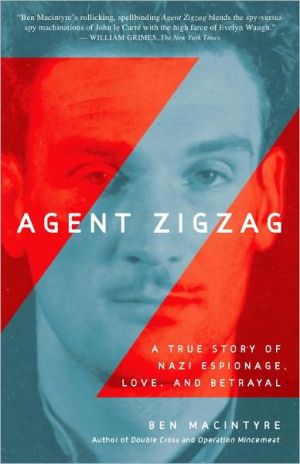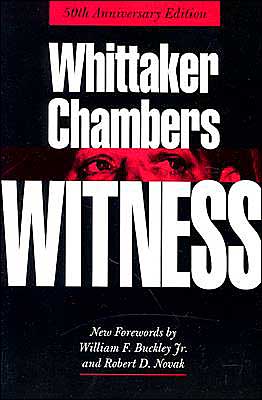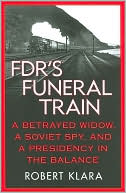Ghost: Confessions of a Counterterrorism Agent
In this hard-hitting memoir, Fred Burton, a key figure in international counterterrorism and domestic spycraft, emerges from the shadows to reveal who he is, what he has accomplished, and the threats that lurk unseen except by an experienced, worldly-wise few. Plunging readers into the murky world of violent religious extremism that spans the streets of Middle Eastern cities and the informant-filled alleys of American slums, Burton takes us behind the scenes to reveal how the United States...
Search in google:
In this hard-hitting memoir, Fred Burton, a key figure in international counterterrorism and domestic spycraft, emerges from the shadows to reveal who he is, what he has accomplished, and the threats that lurk unseen except by an experienced, worldly-wise few. Plunging readers into the murky world of violent religious extremism that spans the streets of Middle Eastern cities and the informant-filled alleys of American slums, Burton takes us behind the scenes to reveal how the United States tracked Libya-linked master terrorist Abu Nidal; captured Ramzi Yusef, architect of the 1993 World Trade Center bombing; and pursued the assassins of major figures including Yitzhak Rabin, Meir Kahane, and General Muhammad Zia-ul-Haq, the president of Pakistan–classic cases that have sobering new meaning in the treacherous years since 9/11. Here, too, is Burton’s advice on personal safety for today’s most powerful CEOs, gleaned from his experience at Stratfor, the private firm Barron’s calls “the shadow CIA.”Told in a no-holds-barred, gripping, nuanced style that illuminates a complex and driven man, Ghost is both a riveting read and an illuminating look into the shadows of the most important struggle of our time. Publishers Weekly With spy thriller suspense and the clarity of a police report, former special agent Burton's State Department saga reads like a brewing-storm prequel to the current "war on terror." Working for the tiny, newly created counterterrorism division of the Diplomatic Security Service in the mid-1980s, Burton liaisons among the FBI, the CIA, and a network of covert informants "to find out the how" of terrorist attacks, and prevent repeat events. This snapshot of his career reveals "the foundations for the chaos we face today: a cold war between superpowers overlayed atop a growing struggle between the Christian world and radical Islam." Of obvious interest to anyone with an eye on world affairs, Burton's assets will draw in even casual counterterrorism fans: the spook can actually write. His first hook is a Dashiell Hammett-esque preface about his hand-written list of targeted terrorist masterminds, which he keeps on his person at all times and "as current as today's headlines." From there he takes readers through the crimes and captures of a few, along with the formation and administration of the first State Department unit of its kind. Most striking is the material's relevance twenty years later; Burton's clashes with Hezbollah in Beirut and prickly diplomacy with Iran could almost be pulled from present-day newspapers.Copyright © Reed Business Information, a division of Reed Elsevier Inc. All rights reserved.
Ghost \ Confessions of a Counterterrorism Agent\ \ By Fred Burton Random House \ Copyright © 2008 Fred Burton\ All right reserved.\ ISBN: 9781400065691\ \ \ Chapter One\ \ The Buried Bodies\ \ 0500\ \ February 10, 1986\ \ Bethesda, Maryland\ \ On my morning run through February's chilly darkness, my chocolate Lab, Tyler Beauregard, sets the pace. This is our routine together, though we always vary our route now. At agent training, which I just completed, they drilled into us the notion that in our new lives, routines will get us killed. When you join the Dark World, you must become unpredictable. Erratic. We must strip away all the conventions of our old lives and fade into the background. We've been trained. We've practiced. Today, I begin my life as a ghost.\ \ These morning runs will be my one tip to the old life I'm leaving behind. Still, today I take new precautions, such as the snubby Smith & Wesson Model 60 .38-caliber revolver tucked away under my belt.\ \ I love these morning runs with Tyler. She is a remarkable animal, my familiar, a canine that intuits more about loyalty and honor than most of the people I encountered as a police officer in Montgomery County, Maryland. She pads along, tongue lolling, breathing steady. She's a pro. She could run marathons of her own.\ \ My footfalls echo across the empty Bethesda neighborhood. The tidy brick houses and apartments are dark. In my new life, I'll be spending a lot of time in darkness.I've learned to be paranoid. I've learned to look around corners and watch my back. Our instructors warned us that the KGB opens a file on every one of us new agents as soon as we graduate. Then they probe our lives and backgrounds in search of weaknesses, skeletons, or any sort of leverage by which to exploit or co-opt us. Sooner or later, they will make contact with an offer. Or a threat.\ \ I glance behind me, half expecting to see some Eastern Bloc thug in a trench coat shadowing me. But all I see is a thin layer of fog and an empty suburban block.\ \ I look behind me a lot these days. It goes with the job. Situational awareness is essential if we are to stay alive. I don't run with a Walkman banging out Springsteen's Born to Run anymore. My ears are unbound and tuned to the street. Every little sound, every shuffle or distant downshift of an automobile on MacArthur Boulevard registers with me. I file each new noise away in my mind, cataloging it so I'll notice anything out of the ordinary. I've been trained to be an observer. Since I started my training last November, I hone and refine this skill on every morning run.\ \ Tyler picks up the pace. She's taking me toward Glen Echo, a small town on the Potomac. We reach a little jogging trail that runs along Reservoir Road. Here, we escape the suburbs and plunge into the woods. Just before we enter the tree line, I steal a sidelong glance behind me again. I practice this move every day; it is something we learned in training. The trick is to be unobtrusive, to not reveal that you're clearing your six. It has become automatic for me now.\ \ No tails. We're not being followed.\ \ Today my life changes forever. I have no idea what is in store for us new guys. I just know that a year ago, I was a Maryland cop. I protected my community. I loved law enforcement, but I wanted something more. So I applied for federal service, and the Diplomatic Security Service offered me a job. Until last fall, I'd never even heard of the DSS.\ \ I started my training in November 1985, just a few weeks after terrorists hijacked the cruise liner Achille Lauro and executed Leon Klinghoffer for the crime of being an American citizen-and a Jew. They shot him then dumped him overboard in his wheelchair.\ \ The world needs more cops.\ \ Only three out of every hundred who start the training get to the finish line. I felt lucky just to be there. After the ceremony, we stood in alphabetically arranged lines waiting to receive our first assignments. Our class coordinator, Special Agent Phil Whitney, began reading off our names and telling us what we'd be doing for the next phase of our lives. Some of us picked up overseas assignments in our embassy field offices. Some landed protective security tours, guarding our diplomats and the secretary of state. Whitney told a few they'd be assigned as diplomatic couriers, where they would carry our nation's most-guarded secrets from one place to another all around the globe.\ \ When he got to me, Whitney paused. He stared at his clipboard for a moment before saying, "Burton, Counterterrorism Branch."\ \ I'd had no idea what that was. When Whitney reached the middle of the alphabet he called out, "Mullen, Counterterrorism Branch."\ \ I looked down the rows of agents to John Mullen. His flaming red hair was easy to spot. I could see him searching me out. We were the only two to be sent to this puzzling assignment. We exchanged confused glances. What had we gotten into?\ \ At least I'd be going into it with a rock-steady veteran. Before he joined the DSS, Mullen had been an agent with the Drug Enforcement Administration, battling the growing narco-criminal element and cocaine cartels on the streets of New York City. Legend had it that he'd been in a nasty shoot-out and had run out of ammunition in the midst of the fray. After that, he always carried two guns. One he tucked away in a shoulder holster. The other he wore strapped to his ankle. He prepared for the worst and trusted in firepower. I swear we all thought he slept with those weapons. They were his pacifiers.\ \ A light rain drizzles down on us now. Tyler shakes her coat in midstride, sending water droplets flying. I wish I could do that. We're still on a course that is taking us away from our little redbrick apartment, a fact that I sense is starting to disappoint my dog. I hurry forward until I'm even with her and bend down to run my hands through her damp fur. She looks up at me with pure love. I've already told my wife that when I die, Tyler's ashes will be buried with me.\ \ Back home, my wife, Sharon, is probably just getting up to face her own Monday. We were high school sweethearts and have known each other most of our lives. Up until now, we've lived an average DINK life (Double Income, No Kids). She's an accountant, a damned good one. She's aggressive and driven and works long hours. Now, I'm a spook. Secrecy is our watchword. I realize with a grin that we'll have nothing to talk about at cocktail parties.\ \ Tyler Beauregard dashes ahead of me again until she reaches a narrow footbridge. She waits for me to catch up. She knows this bridge. We've investigated it before. It is top on the list of Dark World sites to see in Washington, D.C. Of course, there are no plaques or markers noting this piece of spy history. To the average workaday American-guys like me until four months ago-it was just a little bridge over a small creek.\ \ But now I know its dark side. This was Kim Philby's dead-drop point. Philby was the KGB's first true superspy, a British intel operative who embraced Communism while at Oxford in the thirties. He compromised hundreds of agents, destroyed scores of operations, and sold out the lives of countless patriots. When his cover was finally blown in the sixties, he escaped to Moscow and got what he deserved: a hellish life under the regime he had helped sustain. In the dingy concrete apartments he later called home, he devolved into a bitter, broken alcoholic given to frequent bouts of complete incoherence. His conscience became his enemy. He died in shame, his name a byword for treason.\ \ In the late 1940s, Philby was posted to Washington, D.C. It was said that he somehow learned the true size of our atomic stockpile, which was not large at the time. He passed that vital tidbit of national security on to the KGB by taping a tube full of documents under this bridge. Legend has it that the information the Russians retrieved here emboldened Stalin to blockade Berlin in 1948.\ \ This is my world now. The days of chasing speeders, driving drunken high school kids home, and taking down burglars is over. At least for me.\ \ Tyler senses I'm brooding and sets off again. This is her way of telling me it is time to return to the warmth of our apartment. I trail along behind her, my breathing easy. As I watch her galloping for home, it strikes me that she too has a connection to the Dark World. She's from Winchester, Virginia. I bought her from a breeder there in town when she was just a pup. That's John Mosby country. He was a Confederate colonel, a renegade guerrilla nicknamed the "Gray Ghost" who struck terror into the hearts of Union rear-area types during the height of the Civil War.\ \ Now I'm counterterror. Whatever that means. I suppose like every American who watches the evening news, I've seen Americans abroad fall victim to political violence. One terror attack after another has darkened the nightly broadcasts-the Achille Lauro, plane hijackings, car bombings, Beirut. We're a nation still scarred by the Iran hostage crisis and that 444-day nightmare. Will I be fighting against this sort of criminal now? I'm not sure, but I hope so.\ \ Time to find out. We run through the morning, never retracing our steps. Periodically, I check my rear. No KGB agent picks up my tail. When we reach the apartment, we're still alone. A half hour out in the neighborhood and we never saw another soul. It is refreshing to have such privacy.\ \ A quick shower and a hastily downed breakfast soon follow our arrival home. I dress carefully. I toss my Casio watch onto the nightstand. I use it only for running. In its place, I strap on a black-faced Rolex Submariner. There's no way I could afford such a luxury at retail price on my salary. A government special agent makes $22,000. But on our honeymoon to the Virgin Islands a few years ago, I snagged this one for $750.\ \ In the closet, I find my Jos. A. Bank suit. Brown. Standard spook issue. The company gives us agents a discount. I button up a white dress shirt and throw on the one thing that will give me any distinction among my colleagues: a duck-patterned Orvis tie. No sense in totally obliterating my identity with my government threads.\ \ Finally, I reach down to find my Johnston & Murphy lace-up shoes. I used to wear loafers when I wore a suit, but that's a no-no in the Dark World. Our instructors taught us to always wear lace-up shoes. Why? If you have to kick someone while wearing loafers, chances are your shoe will fly off. Lace-ups stay on through hand-to-hand combat.\ \ I wonder who I'll need to kick in the months to come.\ \ I slip a Parker rollerball into my shirt pocket, then check my briefcase. Inside is a small black pouch with the Holy Grail of our business: five little pins designed to be affixed to our left lapels. Each one is color-coded: black, red, blue, green, and gold. Depending on the day and the mission, they denote to other agents that the wearer is on protective security duty. That's basically bodyguard detail, like what the Secret Service does for the president. In agent training, we were told that if we lose these pins, it would automatically trigger an internal affairs investigation.\ \ In the briefcase next to the pouch is my custom-made radio earpiece. It was molded specifically for me and my left ear. When in the field, this will be my lifeline to my fellow agents.\ \ I pull my credentials out of the briefcase. They look like an average wallet until you open them. Inside, they're marked "This special agent holds a Top Secret clearance and is worthy of trust and confidence." Our gold badge sits next to those words. I fold the creds up and tuck them into my left jacket pocket. I'm agent number 192.\ \ Last, I strap on my belt holster. It holds two speed loaders for my Smith & Wesson Model 19 .357 Magnum. I slide the ebony weapon into its sheath and snap the strap in place. With the two speed loaders, I've got eighteen rounds. That should be enough. If you can't get the job done with eighteen shots, you'd better run.\ \ I'm ready for work. Well, almost. It's a cold day and I'll need a jacket. Inside my closet hangs a green Barbour Beaufort. This is a standard-issue piece of cold-weather gear for the British MI5 and several other intelligence services. They're warm and have inner pockets that are perfect for hiding an extra revolver or a small radio. The pockets are lined and keep hands toasty, even on a snowy day. This allows us to forgo gloves, making it easier to draw our weapons.\ \ Or so the veteran spooks have told me.\ \ Back in the day, special agents preferred tweed. Look around D.C. in the sixties and seventies, and the spooks from Langley and the Hooverite FBI agents all wore brown tweed with elbow patches. They looked a bit like college professors, only cooler and in better shape. And well-armed.\ \ That's old-school now. We new guys go with the Barbour Beauforts. One of my instructors told me just before graduation that in a pinch, if you need help while out on the street during an assignment, look for the Barbour Beaufort jackets. Chances are they'll be keeping a spook warm.\ \ But for which side?\ \ By now it's almost six. Sharon's coiffed and ready for work. We kiss and both of us depart, leaving the apartment to Tyler. She'll take good care of it.\ \ My gold Jetta awaits. It is not James Bond's Aston Martin, just the best we could do on our salaries. I climb aboard and head for MacArthur Avenue. I check my rearview mirror every few seconds, memorizing the cars behind me. Are any following? I merge onto Canal Road and pass along the outskirts of the Georgetown University campus.\ \ It seems like such a normal commute in an average part of America. Yet I know that today is going to be different. The life here on the surface, the life 90 percent of us lead, is going to be a mere reflection from now on for me. Already there have been changes. I have a false driver's license. I'm Fred Booth to people in the normal world. We keep our first names so we respond naturally when somebody uses it. I stole my uncle's last name for my pseudonym.\ \ There's another distinction. The plates on my Jetta are standard- looking Maryland issue, but they are blanks in the state's computer system. If anyone runs a trace on them, the Maryland DMV will alert our office. If the KGB wants info on us newbies, our license plates will be a dead end.\ \ Through the predawn darkness, I drive and watch my tail in the light traffic. Seventeen minutes later, I reach the Harry S Truman Building. This is the State Department's home base. Located a short ways off the National Mall, it is an imposing edifice. \ \ Continues... \ \ \ \ Excerpted from Ghost by Fred Burton Copyright © 2008 by Fred Burton. Excerpted by permission.\ All rights reserved. No part of this excerpt may be reproduced or reprinted without permission in writing from the publisher.\ Excerpts are provided by Dial-A-Book Inc. solely for the personal use of visitors to this web site. \ \
Preface The ListPt. 1 Rookie Year 11 The Buried Bodies 32 Down the Rabbit Hole 123 Night Train 194 The Dark World's Redheaded Stepchildren 275 Chasing Shadows 366 No Space Between Black and White 467 The Mad Dog of the Middle East 508 Two Hits for El Dorado Canyon 569 Human Poker Chips 6410 One More Gold Star 7511 The Gray Hell of Wait and Hope 8312 The Stench of Good Intentions 8813 Shipwreck 9714 The Beer Hall Encounter 104Pt. 2 The Veteran 11115 Little Italy 11316 Mice 12117 Threat Matrix 13218 The Bronze Star Assassin 14419 Pak-1 Down 15320 Night Flight 15621 In Country 16022 Pakistani Two7step 16523 One Hour to Nowheresville 17224 The Buffet at the End of the World 17825 Puzzle Pieces 18526 The Perfect Murder 19227 Autumn Leaves 19828 Two-Minute Free Fall 204Pt. 3 War Weary 21729 Street Dance 21930 The Colonel's Revelations 22631 Watching the Watchers 23332 The World's Most-Wanted Man 24133 Deadly Equation 24634 Money Changes Everything 25135 Finale in Pakistan 25636 Lillybrook 261Epilogue Brotherhood of the Badge 266Author's note 273Acknowledgments 275
\ Publishers WeeklyWith spy thriller suspense and the clarity of a police report, former special agent Burton's State Department saga reads like a brewing-storm prequel to the current "war on terror." Working for the tiny, newly created counterterrorism division of the Diplomatic Security Service in the mid-1980s, Burton liaisons among the FBI, the CIA, and a network of covert informants "to find out the how" of terrorist attacks, and prevent repeat events. This snapshot of his career reveals "the foundations for the chaos we face today: a cold war between superpowers overlayed atop a growing struggle between the Christian world and radical Islam." Of obvious interest to anyone with an eye on world affairs, Burton's assets will draw in even casual counterterrorism fans: the spook can actually write. His first hook is a Dashiell Hammett-esque preface about his hand-written list of targeted terrorist masterminds, which he keeps on his person at all times and "as current as today's headlines." From there he takes readers through the crimes and captures of a few, along with the formation and administration of the first State Department unit of its kind. Most striking is the material's relevance twenty years later; Burton's clashes with Hezbollah in Beirut and prickly diplomacy with Iran could almost be pulled from present-day newspapers.\ Copyright © Reed Business Information, a division of Reed Elsevier Inc. All rights reserved.\ \ \ \ \ Kirkus ReviewsThe retired deputy chief of the State Department's Diplomatic Security Service takes readers behind the scenes of investigations into some notable terrorist attacks of the 1980s and '90s. In a fast-paced narrative that at times reads like a spy novel, Burton describes the methodology for cracking some tough cases. The author, now a private-security consultant, has a keen eye for detail and uses it when discussing incidents including the 1993 World Trade Center bombing, the crash of Pan Am Flight 103 over Scotland and the arrest of a man planning to assassinate then-Secretary of State George Schultz. Burton offers interesting factoids, such as why lace-up shoes are preferable to loafers (less likely to come off when kicking someone), and more significant information on how to scope out a crowd for suspects. His passion for his work-and hatred of those who have harmed innocent people-is apparent throughout. Describing his feelings when interrogating a terrorist who is about to become a double agent and betray his colleagues, he writes: "I firmly believe in our system of laws. I believe in justice. Yet reading a piece of filth like Ahmed [last name never disclosed] his Miranda rights makes my stomach do slow rolls." Burton's book contains little introspection, sentimentality or information about his personal life. The literary self-portrait he paints is of a typically hard-charging law-enforcement type with a John Wayne streak who is frustrated by what he sees as bureaucratic obstacles to achieving vital objectives. His prose is descriptive but never flowery, and he rarely wastes words. Burton is critical of officials in both political parties for not being sufficiently proactive, though hedoes not spend enough time explaining the constraints he ran up against. Sparsely written but thorough-a nice complement to policy-laden, big-picture analyses of the war on terror. Agent: Jim Hornfischer/Hornfischer Literary Management\ \ \ From the Publisher“Rife with anecdotes of assassinations, nuclear threats and double agents.”—Oklahoma Gazette\ “Revealing . . . Burton was there, and you will be as well.”—Bobby R. Inman, former director of the National Security Agency\ “The world of counterterrorism is like that old jigsaw puzzle in the back of the closet: Its many missing pieces and extra parts jumbled in from other puzzles make it almost impossible to assemble. But in Ghost, Fred Burton manages to join together enough pieces to give us a discerning look at that world. This is a story, told in human terms, that will help make sense of the great puzzle of our times.” —Eric L. Haney, author of Inside Delta Force and executive producer of The Unit\ “Striking . . . With spy thriller suspense and the clarity of a police report, former special agent Burton’s State Department saga reads like a brewing-storm prequel to the current war on terror.”—Publishers Weekly\ From the Trade Paperback edition.\ \ \
